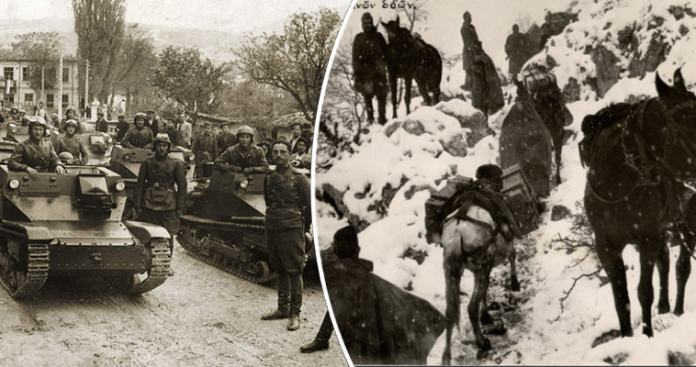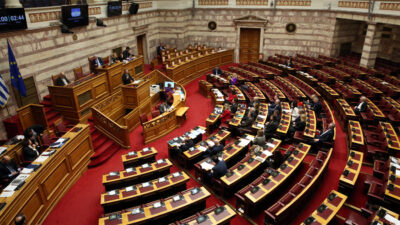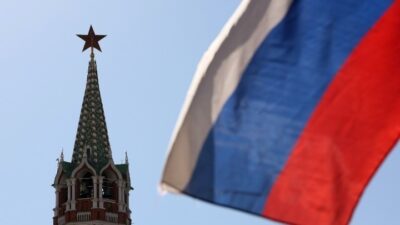Kostas Grivas: The secret of Greek victory on the Albanian Front in 1940
28/10/2020
One of the most persistent views about the Greek – Italian war in 1940 is that Greece was unprepared in terms of logistical infrastructure to wage war on the Albanian Front. But this view ignores a key axiom of military science. Military power is a relative rather than an absolute measure and takes shape depending on a number of factors. The most basic of which is perhaps the geographical environment.
Based on the mountainous and inaccessible environment, where the Greek soldiers were called to fight in the mountains of Pindos, Greece was very well prepared. Among other things, it had a crucial weapon system in larger numbers than the Italians for the environment of the specific battlefield. The mule. Indeed, they accounted for about two mules per five or six Greek soldiers, achieving twice or even higher ratios than the Italian Army.
This fact allowed the Greek forces to achieve much better tactical mobility, utilizing the inaccessible mountain paths. It is worth noting that the tactical value of the mule was re-evaluated by the US Army in Afghanistan in 2001 when it discovered that Humvee vehicles, or even farm trucks, were not suitable for the mountainous terrain where 10th Mountain Division troops were called in.
At the same time, the Greek Army had invested in a decentralized operational philosophy, splitting its large formations into small autonomous groups led by junior leaders (junior officers or even reservists) who quickly adapted to the geographical data of the conflict, which did not work well for large units.
Metaxas and Ausftragstaktik
This fact does not seem to be unrelated to the military intellect of Ioannis Metaxas and the military training he had received as an officer in Germany, at the famous War Academy (Kriegsakademie). There he came in contact with the German concept of Auftragstaktik, which in English is referred to as “Mission Command”.
Auftragstaktik promotes the autonomy of action of junior leaders and their taking initiatives, to the results of which the upper echelons have to adapt instead of trying to impose a predetermined battle plan. The Auftragstaktik was one of the most important factors in the military efficiency of the German and, before that, the Prussian Army.
It is worth noting that the Auftragstaktik was later fully adopted by the Israeli Army. In fact, it was the secret super-weapon of the Israelis in the wars against the Arabs. The Arab armies were trapped in centralized, hierarchical, and rigid models of warfare.
The decentralized philosophy of operations in parallel with “primitive” weapons systems, but adapted to the geographical environment of the battlefield, with the mule being predominant, allowed the Greek officers and soldiers to use their military virtues to defeat an opponent who was anything but soft. This indeed last perception was completely wrong as demonstrated by the horrific battle at hill 731, which is one of the fiercest battles of World War II.
Lessons for the future from the Albanian Front
Suppose, then, that Greece at that time was able to spend ten times as much money on its army and – following fashion – had created large armored and motorized formations, which would operate under centralized administration. In this case, it would run the serious risk of trapping these forces in the wrong geography and turning them from an advantage into a disadvantage.
This is what the Soviets suffered in the early stages of the Russo-Finnish War in 1939. At that time, large motorized columns of the Red Army were trapped by the skillful Finns in narrow defiles and the Soviet soldiers perished in the snows of Finnland, like later the US troops in Korea.
In the second phase of the conflict on the Korean Peninsula, the Chinese infantry, moving at night through mountain paths, bypassed the heavy motorized American columns that were moving slowly between the mountains and hit the UN forces from the rear, causing complete disarray.
So, it is not always high technology that has the advantage in warfare and the victor is not necessarily the most powerful, but the most adapted to the specifics of each conflict. This lesson is something that we should keep in mind today as we consider how to strengthen Greek defense and deterrence capabilities, in order to curb the ever-increasing Turkish aggression and ensure peace in the Greek-Turkish system.
In other words, we do not necessarily need expensive high-tech weapons systems from foreign companies. We must develop skills adapted to the geographical and other peculiarities of our space, to our own strengths and weaknesses. And a related effort, as the author has argued in a previous article, can only be based on the fundamental weapons system, which is a domestic, national, military thinking made by us for us.





